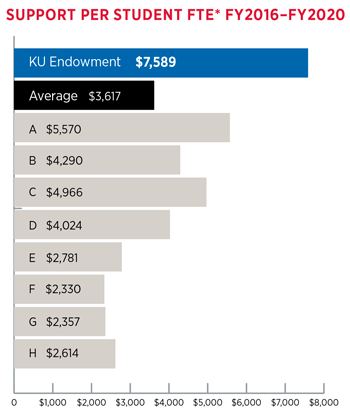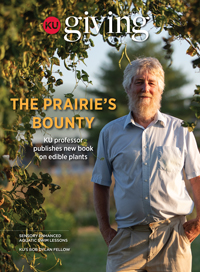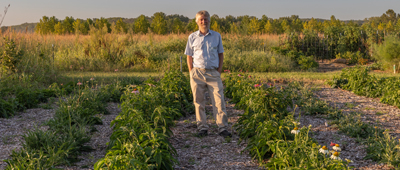Investing in KU Today and Tomorrow
The University of Kansas is fortunate to have a large, well-managed endowment. In the past five years, KU Endowment has provided KU with more than twice as much support per student as our peer institutions in the Midwest. These funds support scholarships, faculty and staff, research, programs and initiatives that contribute to the university’s excellence.
People sometimes ask why we don’t spend more from the endowment to fund immediate needs. There are two ways to answer this question: one common-sense and one financial. This begins with the wisdom farmers have followed for generations: “Don’t eat your seed corn.” Eating your seed corn in a period of distress may satiate your current hunger, but it depletes your ability to plant next season’s crop. You may eat well this year but starve in the next.
In a financial sense, it helps to understand the endowment is not a single fund. Instead, the endowment is comprised of more than 4,400 endowed, permanent funds given by donors for specific purposes. Even when the university is facing challenges, the endowment can’t be used like a piggy bank that is broken open and spent. These funds are meant to provide support to the university in perpetuity, so spending too much today risks diminishing future funding.
KU Endowment’s spending policy is designed to provide a steady, predictable stream of support to KU while also preserving purchasing power for future generations of Jayhawks. Under the policy, the target spending rate is 5.5% annually, with 4.6% to participating funds and 0.9% to KU Endowment as an administrative fee. We live off the dividends generated by the funds held in our endowment.
Thought of differently, every five years, a little more than one-quarter of the value of endowed funds is spent to support KU. This is as much as we can responsibly spend without unfairly taking from those who will come after us — a concept known as intergenerational equity. The strength we enjoy today derives from the generosity and care of those who came before us. We have a similar obligation to future students, faculty and staff not to eat today’s seed corn.

The Council for Aid to Education (CAE) provided this student support data for University of Kansas peer institutions, listed as A–H and randomized to protect privacy. Institutions include: Colorado, Illinois, Indiana, Iowa, Iowa State, Kansas State, Nebraska and Oklahoma.
*FTE = full-time equivalent
*FTE = full-time equivalent



